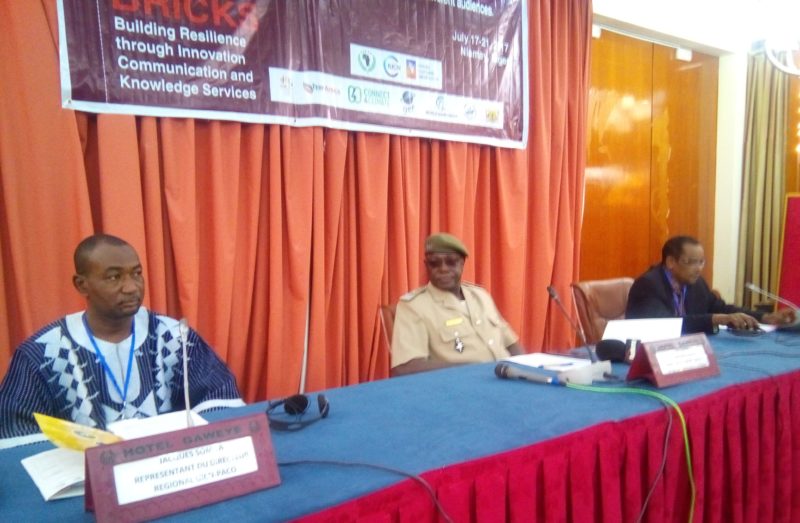Communication and the messages conveyed to the general public play a critical role in the implementation of the Great Green Wall Initiative.

This was the submission of Mr. Ali Moha, Coordinator of the Community Action Programme (PAC3), at the opening of the “Regional Workshop on communicating project results to different audiences” held recently in Niamey, Niger Republic.
In his welcome remarks, Moha stated that the Great Green Wall Initiative has positively evolved over time in its design and implementation strategy by adapting to an ever changing physical, social and institutional environment.
“And it clearly appears that communication and the messages already conveyed or those to be conveyed to the general public in both our cities and country side have played and will still play a critical role,” he stressed, describing the workshop as being of paramount importance for countries in terms of development and sound natural resource management communication.
According to him, the workshop would enable communication experts of the 12 SAWAP (Sahel and West Africa Programme in support of the Great Green Wall) projects and journalists to continue raising public awareness on the vision and challenges to be taken up as part of the Great Green Wall Initiative.
The Great Green Wall Programme is a pan-African initiative conceived to address land degradation and desertification, boost food security and support communities to adapt to climate change in the Sahel-Sahara region of Africa. It was conceived as a 7,700-kilometre tree belt stretching the length of the Sahara Desert.
A representative the Minister of Environment and Sustainable Development of Niger, Colonel Major Bila Maina, in a welcome address, disclosed that the objective set for the BRICKS (Building Resilience through Innovation, Communication and Knowledge Services) Project is to bring an effective contribution to the implementation of the Great Green Wall for the Sahara and Sahel.
Maina, who is Permanent Secretary of the Ministry of Environment and Sustainable Development, stated that the workshop would enable the BRICKS Project communicators and journalists to be equipped with strategic communication and story telling techniques so as to better share best practices, inform and raise the awareness of decision-makers.
He added that awareness of the general public will also be raised with respect to the achievements recorded in the implementation of the SAWAP projects and of the Great Green Wall Initiative.
A representative of the IUCN (International Union for the Conservation of Nature) Regional Director for Central and West Africa, Mr. Jacques Somda, in an address, expressed confidence in the competencies and expertise of the participants as well as their commitment towards improving natural resource, as well as land and water management.
He thanked the World Bank for supporting to the 12 African countries involved in the scheme to increase their resilience capacity in view of combating poverty.
Organised by the IUCN in collaboration with the Permanent Inter-States Committee on Drought Control (CILSS), the Sahara and Sahel Observatory (OSS) and World Bank, the workshop held from July 17 to 21, 2017 and was facilitated by Mr. Peter Paul Van Kempen for the IUCN‘s Commission on Education and Communication (CEC), assisted by Mr. Christophe Hien and Madam Félicité Mangang.
The workshop is part of the implementation of the SAWAP BRICKS Project. It aimed at contributing to communicating to key audiences the way SAWAP Projects’ results are supporting the implementation of the Great Green Wall Initiative, by producing success stories for decision-makers within governments, the private sector and civil society that give evidence of the value added of the various country projects of the Great Green Wall.
About 50 participants came from 12 SAWAP countries (Benin, Burkina Faso, Ethiopia, Ghana, Mali, Mauritania, Niger, Nigeria, Senegal, Sudan, Chad and Togo) and Guinea. They were made up of communication experts, journalists, representatives of the three BRICKS executing agencies (IUCN, CILSS, OSS), the Focal Points of TerrAfrica, of the Great Green Wall national agency and of ReSAD in Niger.
The workshop entailed presentations, group work and discussions, as well as a field trip.
